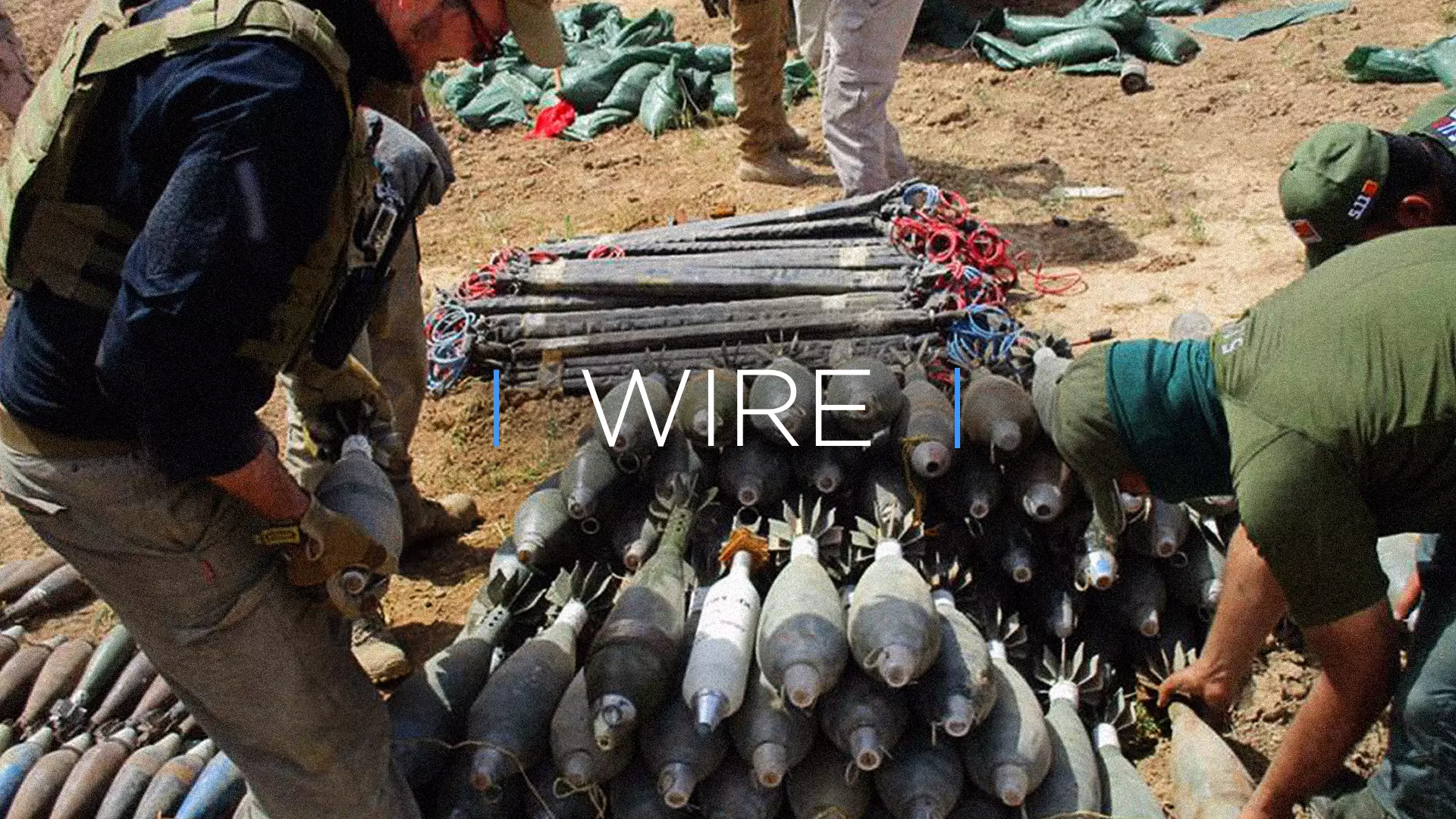
Charlie Martell has the rank of Captain. But he isn't in the regular armed forces.
Instead, he commands the world's most elite counter-Improvised Electronic Device (IED) team. Each member of the team is a private contractor. Deep inside Iraq, they work on the frontline to tackle the unprecedented problem of ISIS' hidden bombs and booby traps. It's one of the most dangerous jobs in the world because of the tactics ISIS have deployed.
"The sheer scale of the IEDs is immense," Charlie tells LADbible. "I would estimate ISIS have laid millions here, buried as part of perhaps the largest IED campaign ever undertaken.
"It has been done on an industrial scale, and they're everywhere - roads, pavements, shops, schools, power stations, water pumping-houses and even individual homes. They're designed to either cause maximum damage or prevent people from entering entire sections of a city. Nothing like this has ever been done before."
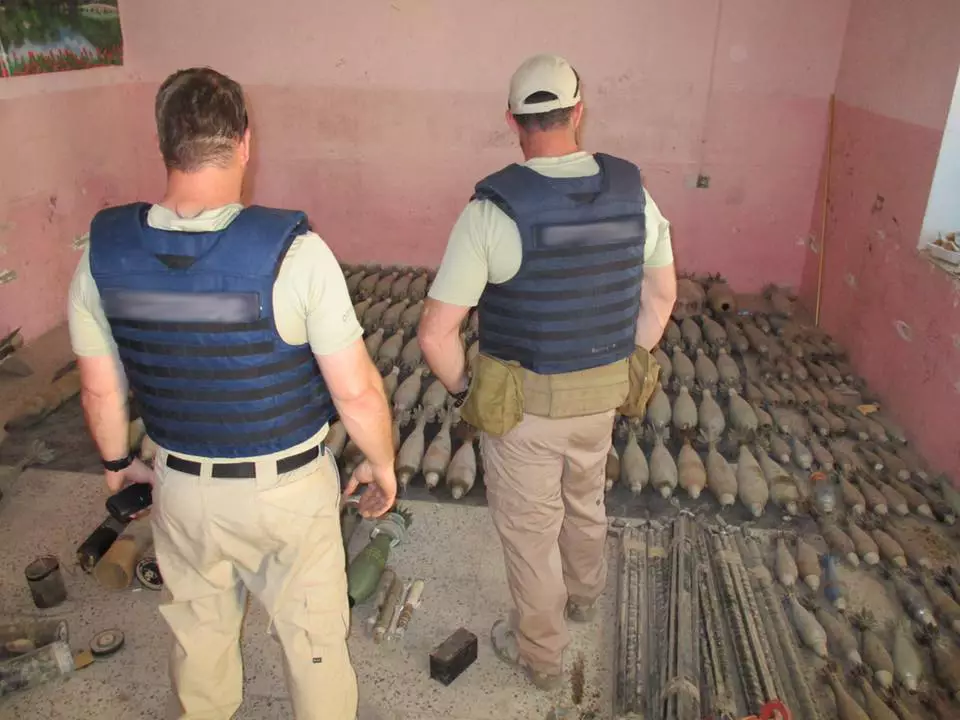
Charlie's team discover a stockpile of ISIS weapons in the Al-Hamdaniya District of Iraq
Advert
IEDs were a tactic deployed in Afghanistan by the Taliban. They claimed the lives of 224 British armed forces personnel.
During the last three years, ISIS have been entrenched in cities like Fallujah and Mosul - where they continue to make a stand. During that time, they opened IED factories which industrialised their production. ISIS bomb makers have hidden countless devices and there are now so many that it has been listed as a humanitarian crisis. In fact, ISIS have become so adept at deploying these tactics, they are now considered to be the best in the world.
My team could all be driving buses or doing something else - they don't have to do this job. They choose to do this because it's their specialism and their calling. They want to help.
Charlie leads a team of former military personnel who are trying to combat the problem. Contracted by an international organisation that LADbible isn't allowed to name, they've been sent in to find the IEDs and then disarm and dismantle them. They do it all by hand using tools like paintbrushes and wire cutters. It's harrowingly dangerous.
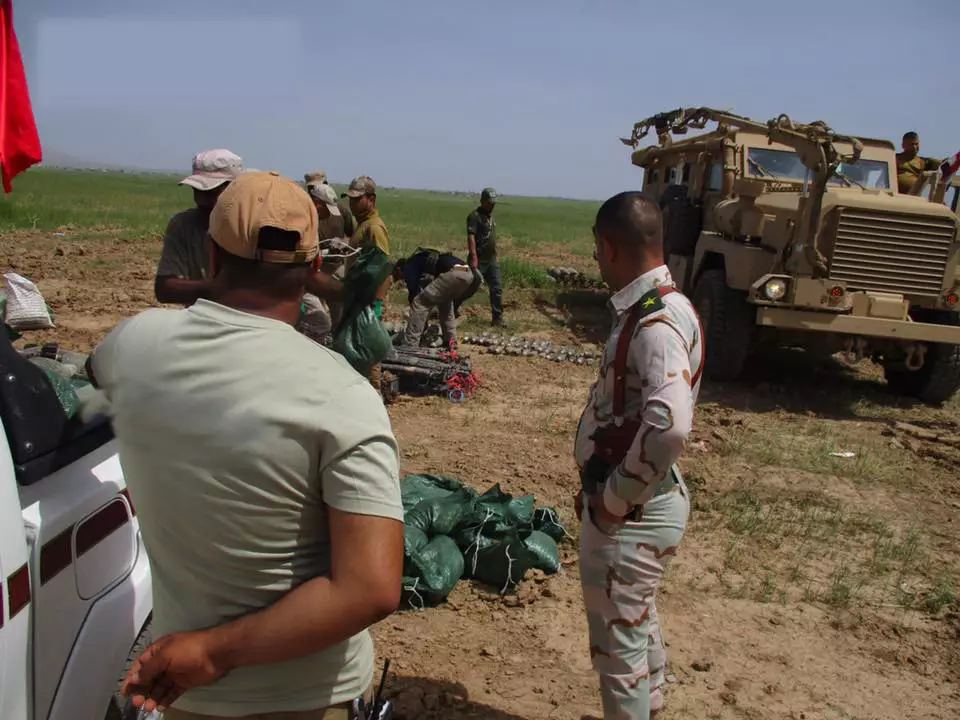
Charlie's team working with local forces in Iraq
Advert
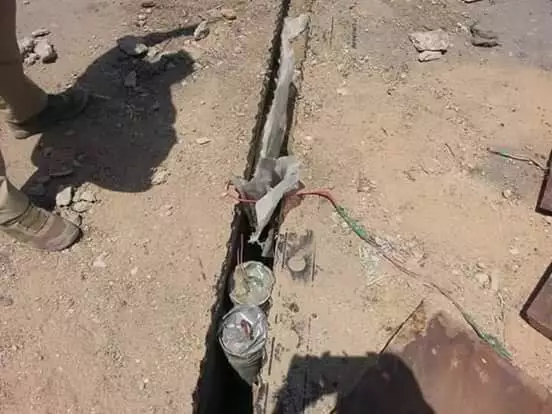
Explosives next to a bridge in Fallujah
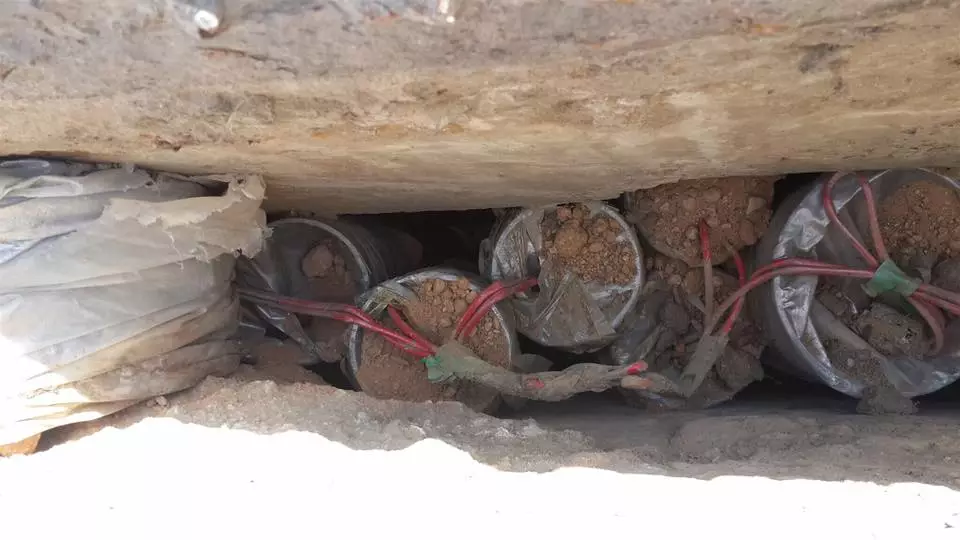
1500kg of explosives packed under a bridge in Fallujah
Advert
"It's a case of getting down on your belt buckle and just doing it," Charlies explains. "One of our guys made safe more than 30 IEDs in one day just a few weeks ago. In the armed forces, the most you'd ever do is likely to be a lot less, even on operations. So, to do more than 30 is a lot. Over a week, he dug up about 2,500kg of explosives. My men are incredibly brave - it's a bit like the film 'The Hurt Locker' - only this is real. We've been out here for a while and we've neutralised many IEDs, but we're only just scratching the surface."
You can hear the underlying pride in Charlie's voice. For him, this is a very important mission. Ever since ISIS began retreating from their Iraqi strongholds, civilians have flooded back in a bid to reclaim their old homes before they are stolen from under them by new families. Their return would lead to many casualties, but so war-torn is the country that the government has no official figures for how many people have died.
"My team could all be driving buses or doing something else - they don't have to do this job," Charlie says, flatly. "They choose to do this because it's their specialism and their calling. They want to help."
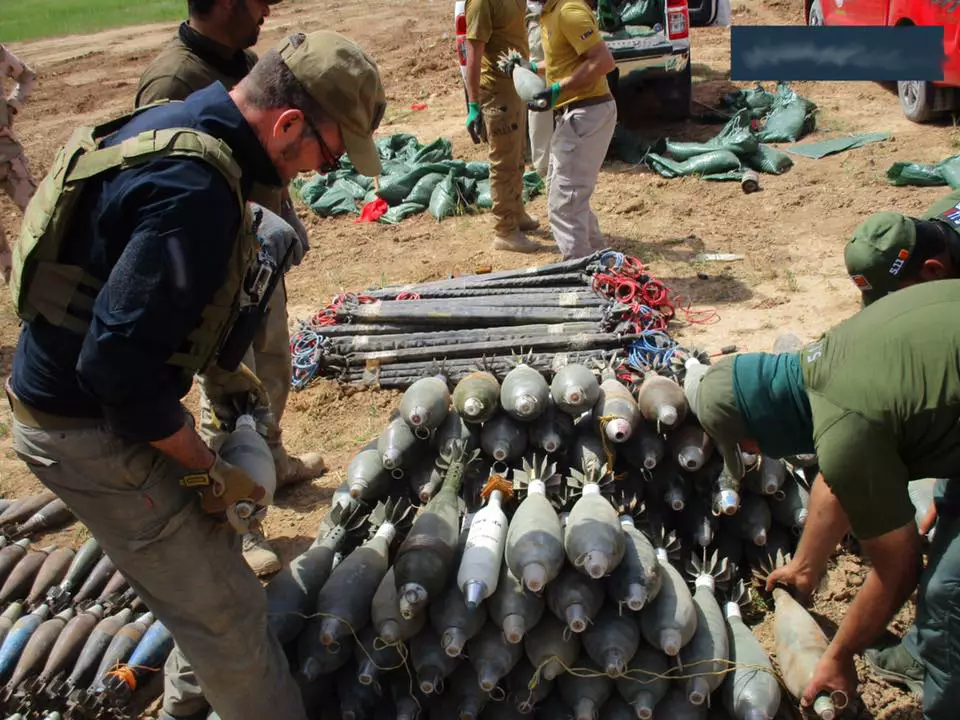
Uncovered stockpile of ISIS Mortars
Advert
Charlie's Iraqi team consist of around 14 to 18 men, and work alongside the local Iraqi army. His men all have different roles. There are security personnel armed with AK-47s and pistols, armoured convoy specialists, high-risk searchers and IED disposal specialists. But each 'operator', as they're known, has come to this job through one channel.
Few people have heard of The Circuit. It's a largely clandestine world of private military contracts, carried out by former armed forces personnel. Charlie has worked on The Circuit for years, and it's how he came to be in Iraq.
"There are lots of different types of contracts out there, and some are more lucrative than others," Charlie reveals. "It's why you see some men leaving the armed forces. But it's also tightly regulated. Our contract, for example, is under constant scrutiny from the powers that be. This is a humanitarian mission, after all."
Nobody knew what was going on until the dust cleared, and we realised our searcher just wasn't there anymore. His brother, who was also with us that day, just fell apart.
Charlie talks openly about his work, which goes at odds with public perception. Most imagine private military contractors to be mercenaries. But that word is largely seen as offensive on The Explosive Ordnance Disposal (EOD) Circuit.
"What we do is a highly skilled job," says Charlie. "And don't get me wrong, I couldn't do what some of our guys do. But we aren't gung-ho or trigger happy. We don't walk around in black camouflage gear. Our job is to help the locals, and we interact with them all the time.
"The only people we try to hide from are ISIS, and there are snipers and sleeper cells out here that we try to avoid. So, no, we aren't mercenaries. To disarm an IED by hand is an incredibly skilled job. Every day when they come back to our compound, I go out of my way to thank them for what they're doing because I know that day could have been their last."
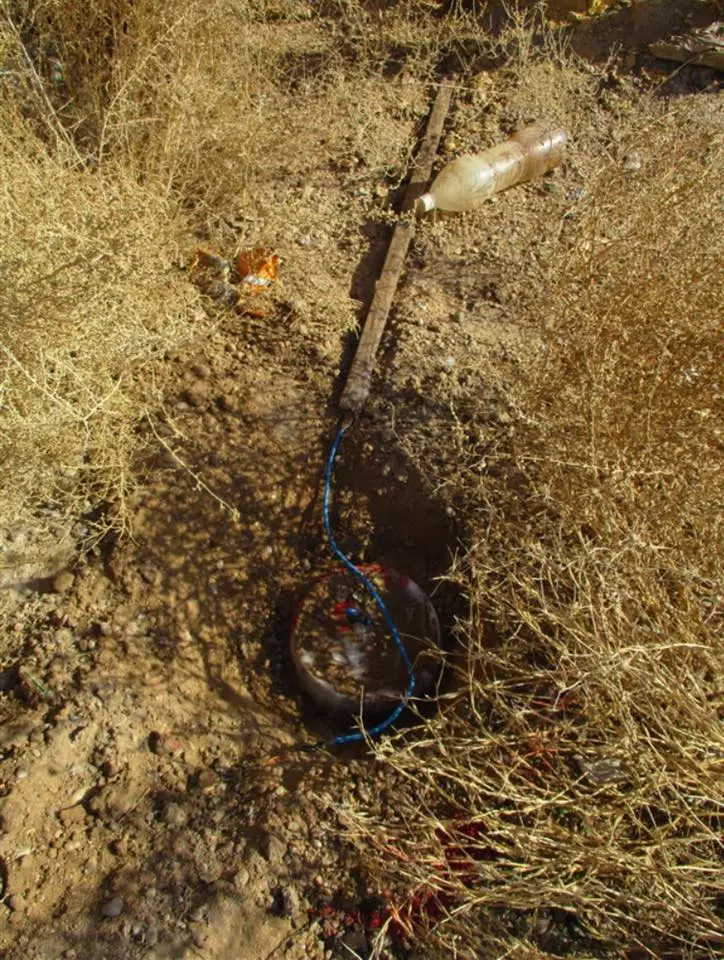
An IED revealed in grassland
Advert
His voice breaks slightly at this point. Just a few weeks ago, the team lost one of their colleagues, who had been tasked with physically finding the hidden bombs and booby traps in the ground. Charlie says he gets goosebumps every time he thinks about it, and the team remain deeply affected.
"Our guy found an IED and was about to mark its location when, suddenly, there was a loud bang and dust everywhere," says Charlie, before pausing for a second with the clearly difficult memories. "Nobody knew what was going on until the dust cleared, and we realised our searcher just wasn't there anymore. His brother, who was also with us that day, just fell apart.
"We couldn't find the body so we had to go back the following day, and we used a drone to get a proper look. Eventually, we found the body in two parts, and I had to send the guys out among the remaining IEDs to recover it. That's one of the hardest things any of us has done."
Few words can adequately describe the bravery displayed by this team of IED experts. Their humanitarian work is as unprecedented as the problem they are trying to tackle.
"Nobody is talking about the IED problems here because the conflict with ISIS grabs the headlines," Charlie suggests. "What they leave behind just goes unreported. But this is going to be a problem for a long time to come, and we need to do more to try to help these people."
Words: Mark Tattersall
Featured Image Credit: